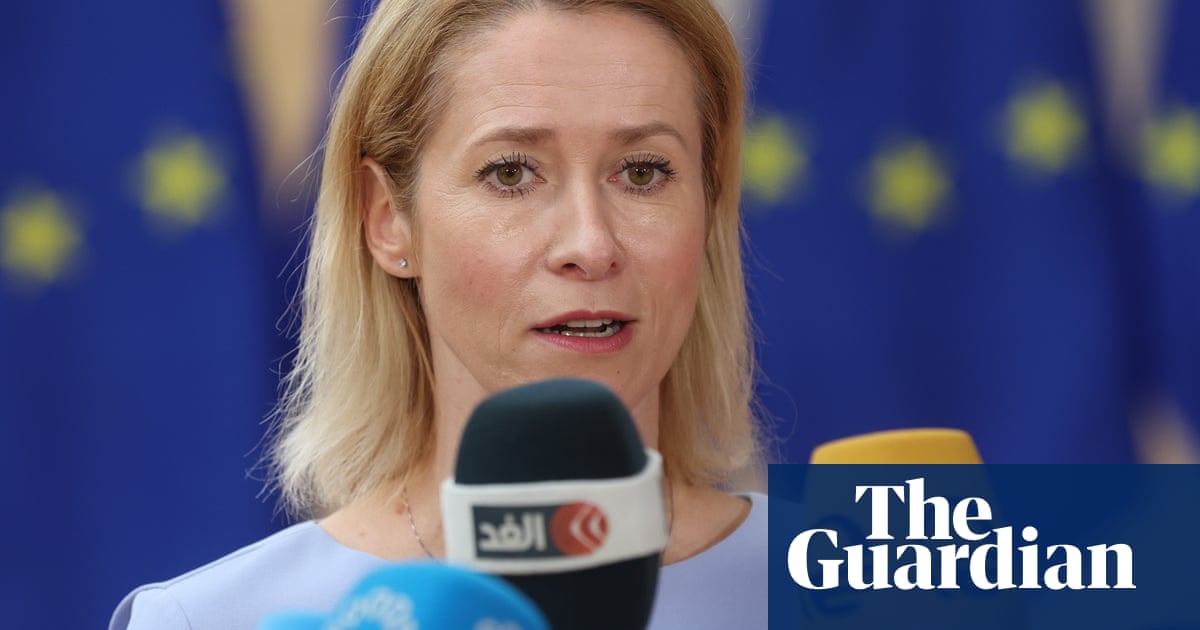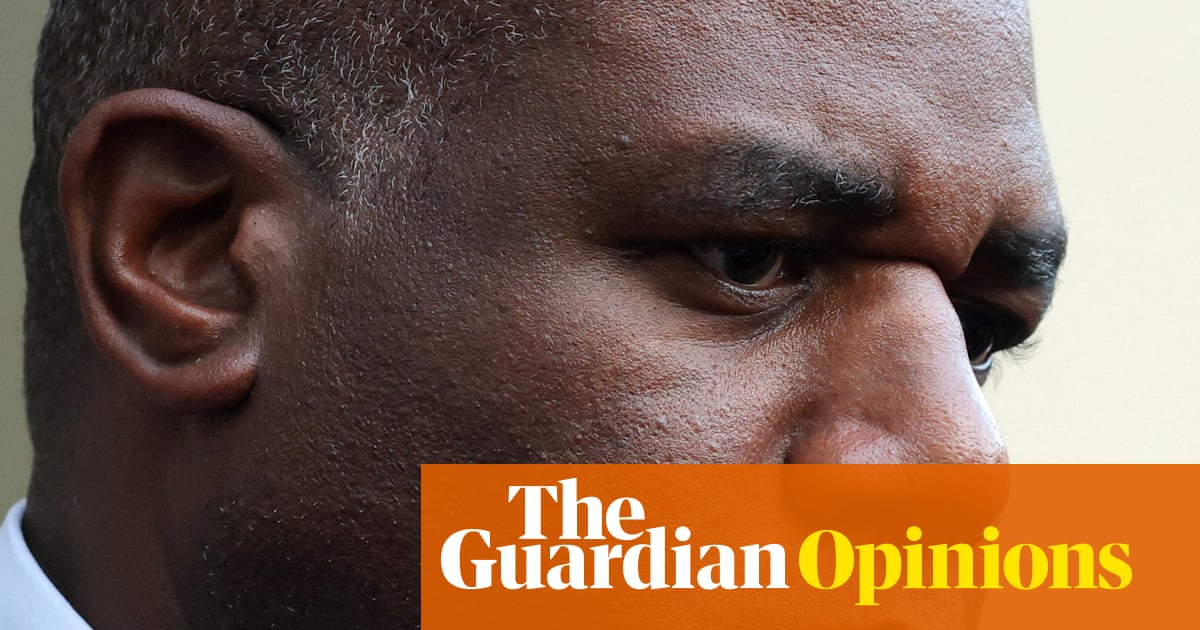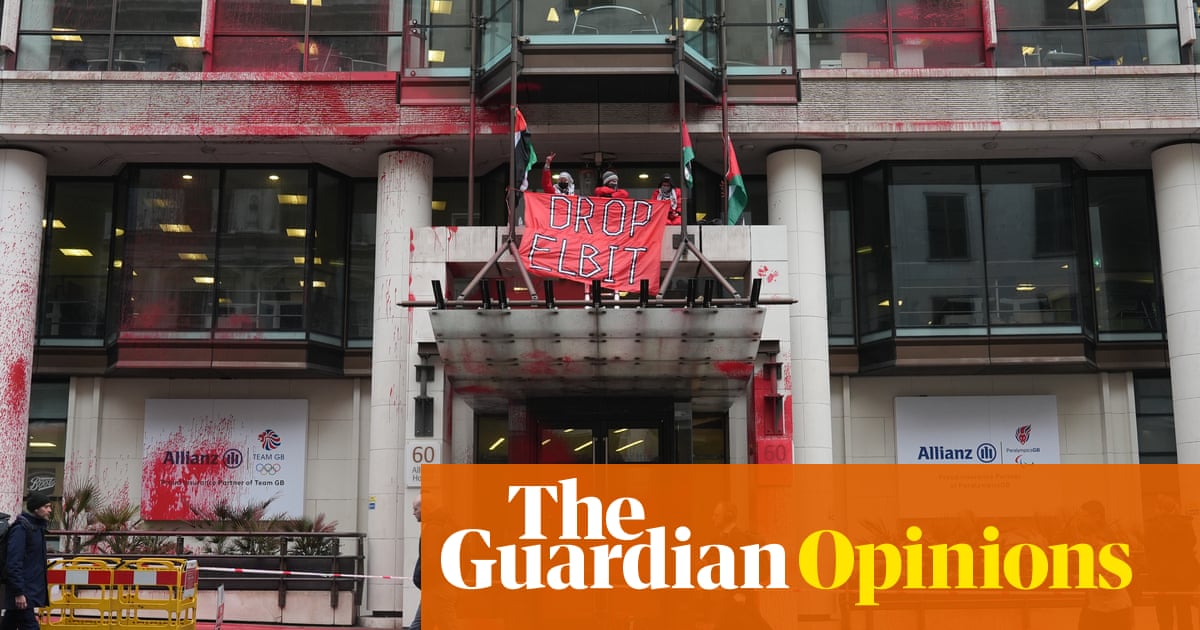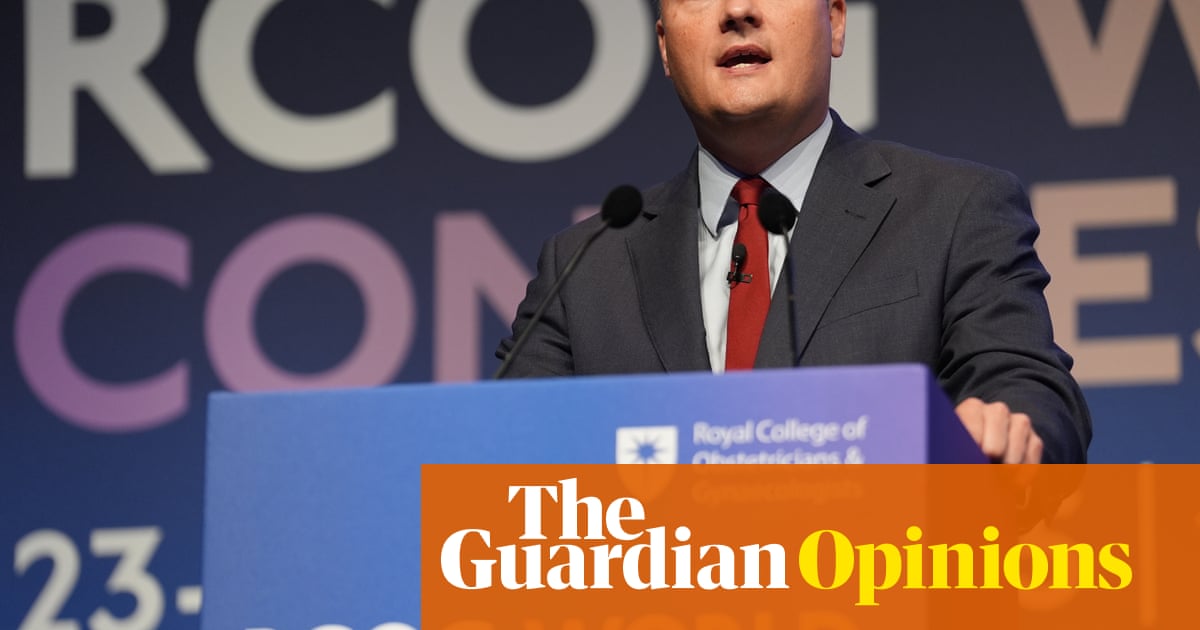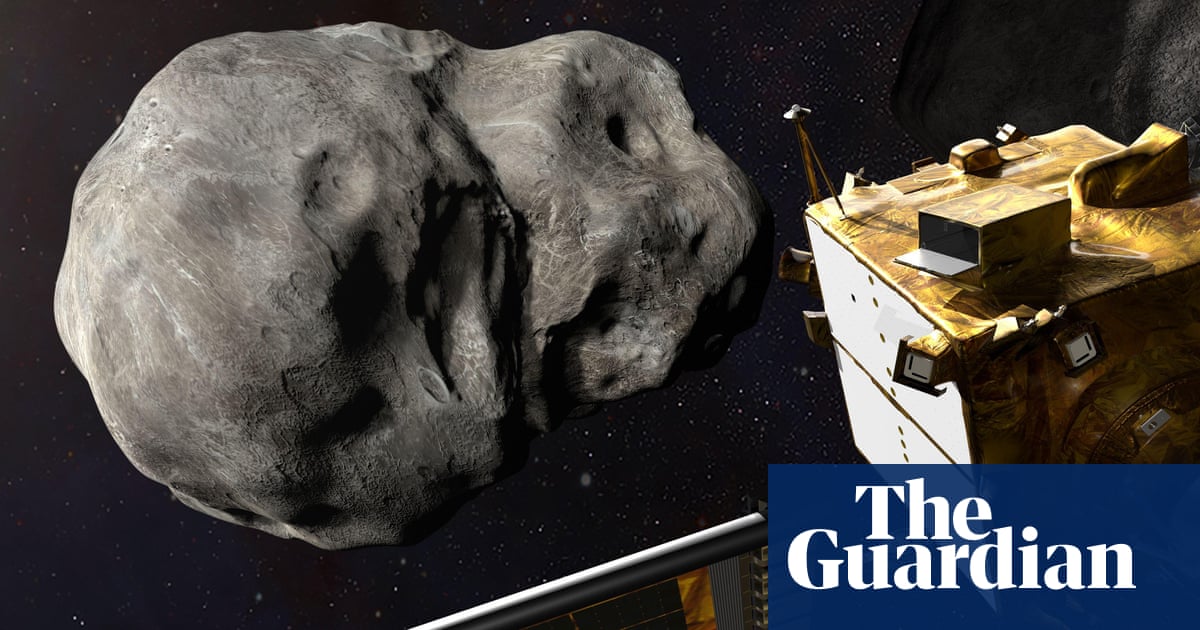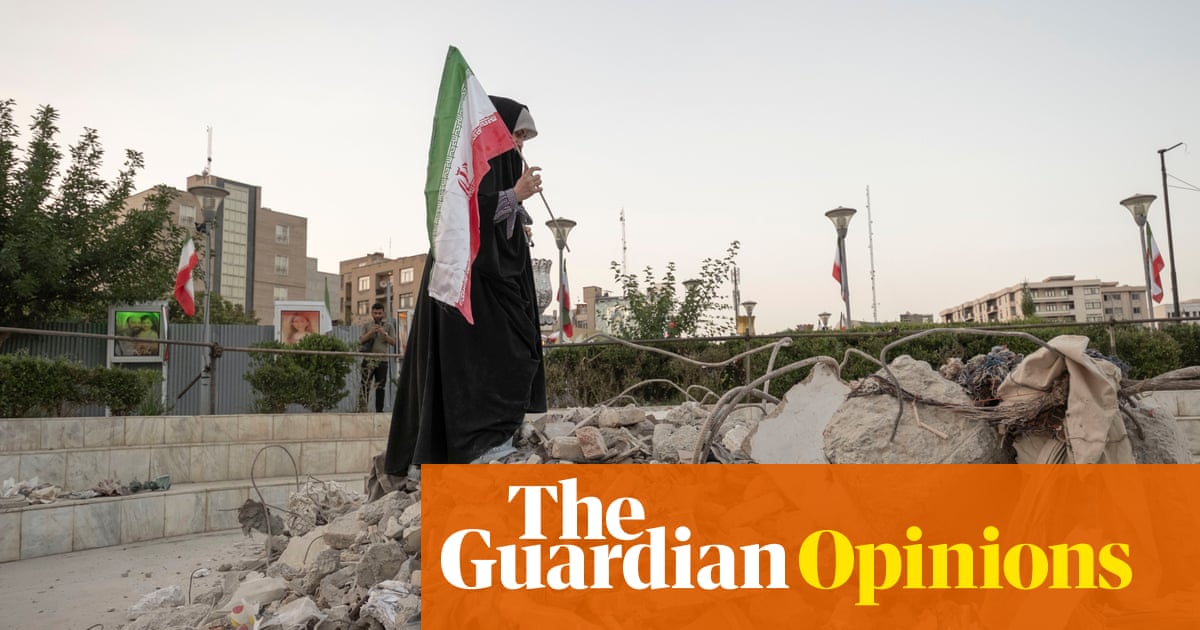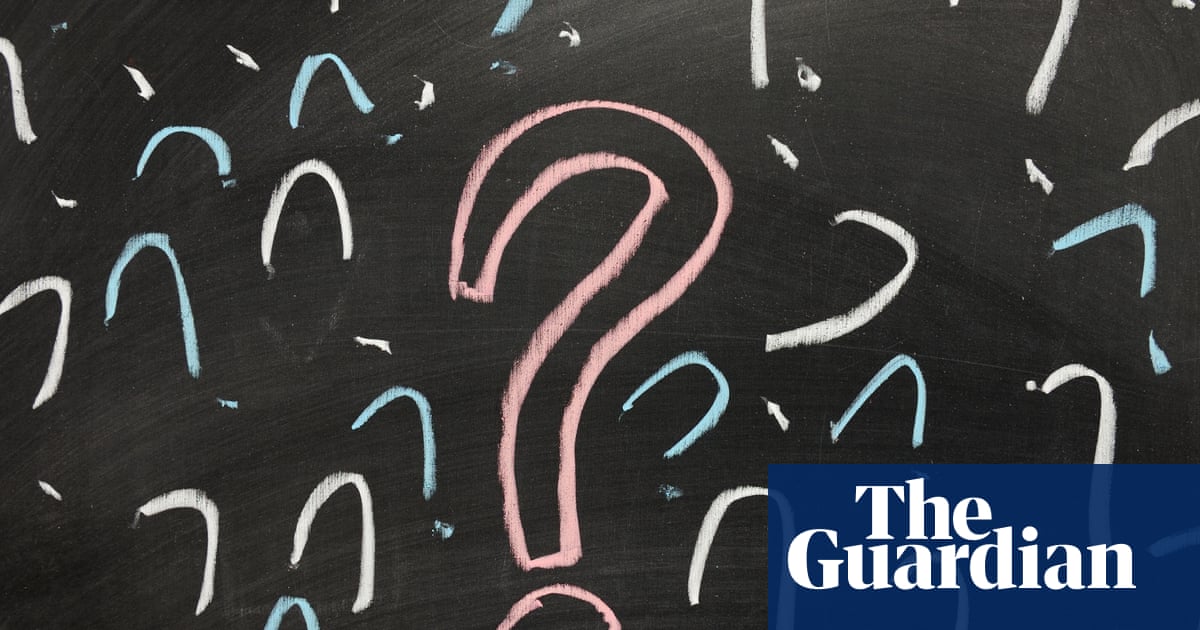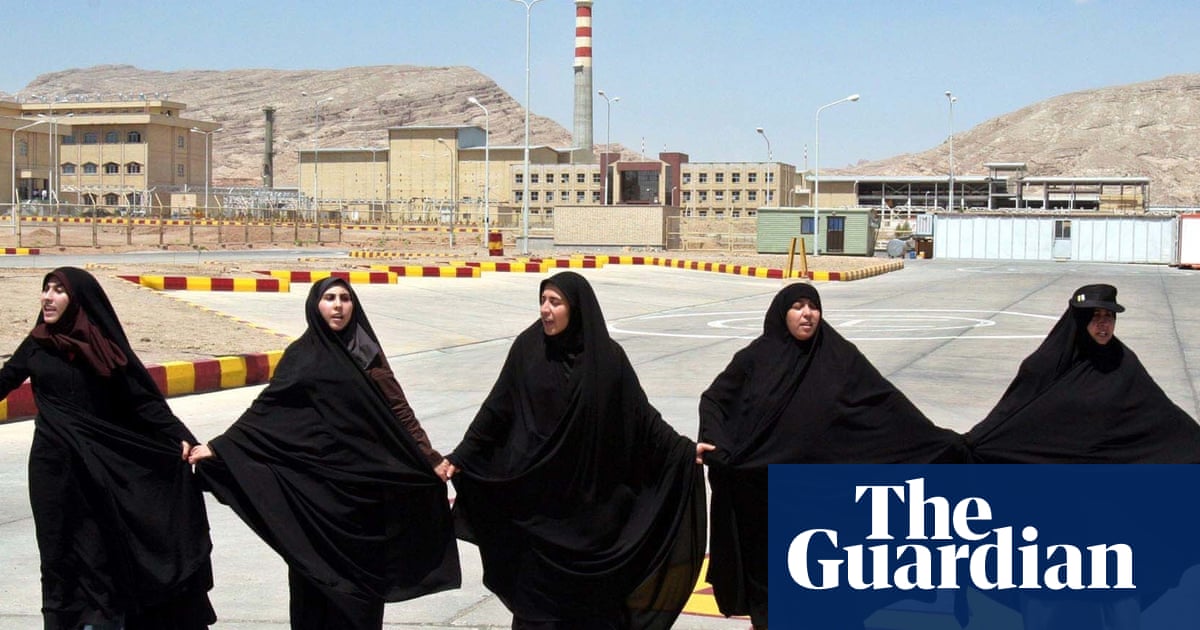
Guardian Europe columnist and Berlin-based journalist, novelist and playwright
Now is the time to move closer together. The historic success of the far right in Germany’s federal election is a threat not only for all disadvantaged groups in this country – including women, immigrants, queer people, people of colour, Jewish people, disabled people – it is a threat to democracy that should concern everyone.
Still, it is those groups that will be most affected by a mood shift that comes with the reality that one in five voters are in favour of a party whose leader announced last night on live TV: “We will hunt them down!” Echoing a warning once proclaimed by a former AfD co-chair in 2017 when the party first entered parliament, this was ostensibly a warning to other political parties, but her intentional wording of course provokes all of us who the AfD sees as opponents. And it doesn’t even cause a scandal any more. We know who they are and what they are up to. The question is: who else will join them in rhetoric and actions?
On Sunday night when the counting of the election results had just started, I stopped by an “election party for the plural democracy” in Berlin. The non-partisan event billed as a “public screaming” took place only a few metres away from the chancellery. Gathered under the umbrella of an antifascist consensus, artists, activists, journalists and academics came together in short panels to share their hopes and fears for the coming years, while the audience was having pizza and dancing to hip-hop band the Swag’s uplifting performances in between. It felt good to be among people who dressed up and left the house, instead of mourning at home. The victories of conservative and far-right parties had been widely expected, so we celebrated the small victories instead: the pro-business FDP and the anti-immigrant populist party BSW didn’t make it into parliament; the Left tripled its votes since polls from December, from 3% to almost 9%.
The important conclusions of the night were: we have to organise and strengthen our resistance against the right-leaning majority, we have to spread this energy outside Berlin and we have to watch out for each other and leave all bitterness arising from intra-left conflicts aside. The priority has to be to protect our civil and human rights. None of these strategies are new, of course, but it’s important to reassure each other again and again, especially after a night of results that felt like a turning point for progressive forces. And it certainly helps to do so under a giant disco ball.

German-British historian and author of Beyond the Wall: East Germany, 1949–1990
Germany’s election could almost convince outside observers that consensus politics is alive and well in Berlin. There is a clear winner: the conservative CDU/CSU, whose leader, Friedrich Merz, looks set to be the next German chancellor. The incumbent, Olaf Scholz, conceded immediately and congratulated his challenger. There were no concerns of civil unrest nor suspicions of electoral fraud.
But underneath the surface, deep cracks have torn into Germany’s political landscape. After the second world war, the conservatives vowed that there must never be a successful party to the right of them. Now, it’s obvious that they’ve failed in that ambition. The anti-immigration AfD has doubled its support from 2021, coming second with about a fifth of the vote share.
The AfD leader, Alice Weidel, was visibly elated. Understanding that this electoral breakthrough has made her party impossible to ignore, she told reporters: “We’re now firmly anchored as a Volkspartei” – or “people’s party”, a term once used exclusively for the CDU/CSU and Olaf Scholz’s SPD as the big beasts of German politics.
Weidel didn’t hold back in demonstrating what will likely become the AfD’s strategy: breaking down the so-called firewall that’s keeping it out of power. All other parties have vowed never to work with the AfD. As Merz begins the difficult task of assembling a coalition that forces his centre-right party to turn to a centre-left coalition partner, Weidel reminds him that her door is open too, “so that the will of the people might be implemented”.
She was alluding to Merz’s election promise to restrict irregular immigration, which is something polls say the majority of Germans want. His likely coalition partner, the SPD, is very uneasy about that, not least because the AfD might vote with it, which many see as a breach of the firewall.
Meanwhile, as the main opposition party, the AfD won’t have to dirty its hands with messy election results and compromise politics. It doesn’t have to find answers to complicated questions. All it has to do is point to conflict between Germany’s centrist parties in their quest for solutions, knowing a fifth of the German electorate lends a lot of weight to the battering ram hammering the firewall.
If there are clear winners of Germany’s 2025 election, it’s the political fringes.

Stanley Wade Shelton UGAF professor of international affairs at the University of Georgia
It was a typical western European election for the 21st century: the centrist parties scored historically bad results, the far right gained, and the party system fragmented further.
Although the results showed a Rechtsruck, a swing to the right, it was much smaller than expected – particularly in light of a campaign focused on immigration and the role of the far right, which is a combination that has proved to be the perfect breeding ground for recent far-right victories in western Europe, for example Sweden in 2022 and the Netherlands in 2023.
True, a small majority of Germans did vote for anti-immigration parties, but all of them underperformed. The conservative CDU/CSU won most seats but did not top 30%, its second-worst result in history; the far-right AfD came second nationally but, at just over 20%, fell short of its performance in state elections a few months ago. The left-conservative BSW failed to win enough seats to enter the Bundestag at all, despite a year of media hype about its prospects.
Rather than declaring the minority that voted for the far right to be “the” German people, the centrist parties should accept and address the pluralism of Germany’s population. With a stagnating economy and a new global reality, the country needs a strong democratic government, as the chancellor-to-be Friedrich Merz noted in his conciliatory victory speech. His government should neither cater to the far right nor define itself in opposition to it. Rather, it should constitute a broad grand coalition with the Social Democrats and the Greens, around a necessarily minimal but nevertheless positive agenda that situates Germany right at the heart of a liberal democratic Europe. Like so many centrist campaigns before, the anti-immigrant campaigns of both centrist parties (CDU and SPD) did not win over any far-right voters. Nor did they inspire their core voters. To do that, they will need their own ideas and priorities, which means looking beyond immigration (which was only the third most important issue for voters, despite the disproportionate media and political attention) and a constructive focus on socioeconomic issues (the most important issue for CDU/CSU and SPD voters), as well as ensuring peace in an increasingly hostile world (the second biggest issue for SPD voters, fourth for CDU/CSU voters).
In other words, they should govern for the 80% who voted for liberal democracy rather than for the 20% who voted against it.

Political journalist with Die Zeit
In a somewhat sombre mood, Germany’s Christian Democrats celebrated their victory on Sunday night after a country in turmoil had, in huge numbers (an 83% turnout, unmatched since German reunification), gone to the polls. Even though their own score was underwhelming – the CDU had expected a solid third of the votes, and got only 28.5% – Friedrich Merz is set to fulfil a life-long dream: at the age of 69, after three failed attempts, he is expected to become chancellor of the Federal Republic.
A business lawyer who has done quite well for himself during a decade outside professional politics, Merz has never actually governed. But even without that experience, the future chancellor knows what challenges he faces. The country, though still the world’s third-largest economy, is in the third year of recession. Political tensions have mounted, in particular after a succession of killings in public places in which the suspects were refugees or Islamists. The AfD, Germany’s far right, has now doubled its strength and will sit to Merz’s right in the German Bundestag with a mind-boggling 152 seats, reflecting the votes of about 20% of the electorate. They, not the Social Democrats, came in second.
Merz, a cultural conservative and a liberal in his economics, has often expressed his personal disgust vis-à-vis members of the AfD. He does not greet them, even when caught alone with one of their midst in an elevator. And yet the chancellor-to-be recently granted them an unnecessary triumph when bringing a motion into parliament concerning migration that would only be passed with the AfD’s consent.
Merz’s CDU finds itself in a quandary: while the Social Democrats (whom he will have to govern in coalition with) paint him as a rightwing populist who is paving the way for the far right, the AfD recently yelled at him in the Bundestag: “We are the future, Herr Merz! Follow us if you still have any strength left.” Many in the CDU fear that this will be their last chance: “If the centre parties don’t manage to solve our country’s problems, the next elections will be lost,” Merz said at many campaign stops. “And the elections after that will be those of 2033. Imagine that.”
But the central pitch of his campaign has been a global one. Merz, a staunch transatlanticist and pro-European, sees Germany at the forefront of the worldwide clash between democracies and authoritarians. It was a shock for him and his party to see how Elon Musk, the US president’s right-hand and owner of the platform X, blatantly interfered with the elections in favour of the AfD, a party with many anti-American instincts. Merz openly vented his anger and annoyance at JD Vance’s Munich intervention in the same vein. It is this – the palpable and existential difference between Conservatism and authoritarianism – that will mark his reign, one way or the other.

German political scientist and professor of European politics at the University of Oxford
In many ways, it was a relatively normal election. With an incredibly unpopular government and dire economic outlook, voters decided to support opposition parties instead of those that made up the previous coalition. All members of the outgoing coalition made up of the SPD, Greens and FDP lost votes – with bigger losses for the SPD and FDP than for the Greens. The conservative opposition CDU/CSU came out on top.
However, even in this relatively normal election, some things stand out. Above all, the dramatic electoral success of the far-right AfD, which almost doubled its vote share and came out with more than 20% of the vote. The AfD has massively benefited from immigration being the dominant issue in the campaign. Over recent years, nearly all other parties have moved further to the right on immigration. As we know from extensive research on this phenomenon, such accommodation normalises and legitimises the far right.
As in many other European countries, the behaviour of the mainstream left and mainstream right has strongly contributed to the success of the far right in Germany. Only a few weeks ago, the CDU/CSU tried to pass a law with the support of the AfD – a historic precedent in the Bundestag. This clearly did not help the CDU/CSU electorally. It lost close to a million voters to the AfD. But this strategy has moved the AfD from the fringes to the centre of German politics. While the AfD will very likely not be part of the next German government coalition, this election and the behaviour of other German parties have lifted them into a new position of power.
The second remarkable result comes from the leftwing Die Linke. It had been written off as a dead party that was very likely not to make it into the Bundestag again after Sahra Wagenknecht broke away to form her own movement. However, the Linke strongly increased its support in the last weeks of the campaign. Many believe that the party managed to attract progressive voters who were alienated by the SPD and Greens, especially on migration and Gaza.
While many progressives turned their backs on the SPD a long time ago, the Greens seemed like the natural home for these voters. However, as part of a government that pushed through draconian measures against asylum seekers, and running a campaign strongly focused on the centre, the Greens did not manage to gain these voters’ support. Their biggest losses were among younger voters – their former stronghold. Die Linke saw huge gains among these voters and it has also come out as the strongest party in Berlin.
It should be a lesson for left and progressive parties in Europe that moving right can be a costly strategy, because progressive voters will look for a new home.

Senior visiting fellow at the European Policy Centre
As Donald Trump rushes to carve up Ukraine with Vladimir Putin over the heads of the Ukrainians and Europeans, Europe urgently needs a stronger Germany to give its voice more weight. Berlin has been largely absent from diplomacy over the future of the EU and Nato because its government was weak and divided long before it collapsed last year, and its economy is in the doldrums after two years of recession. With France also in political crisis, there is a power vacuum at the heart of Europe just when strong leadership is vital.
Conservative Friedrich Merz, who will be the next chancellor after his party topped Sunday’s poll, is determined to provide that leadership. He sounds bolder and less cautious than the outgoing Social Democratic chancellor, Olaf Scholz. On Sunday night, Merz said his absolute priority would be “to strengthen Europe so that we can achieve step-by-step real independence from the US”, adding that it was not clear “whether we will still be able to talk about Nato in its current form” after Trump’s rapprochement with Russia. The lifelong Atlanticist has said Europe can no longer rely on American protection, and called for talks with the UK and France on sharing their nuclear deterrent with Germany and Europe.
Yet it remains unclear how far Merz will be able to overcome Germans’ deep-seated aversion to all things military, boost defence spending substantially by loosening the country’s borrowing straitjacket, or agree to borrow jointly with European partners to procure key defence systems. Sunday’s result gives him a chance to form a two-party coalition with the Social Democrats. He should have sufficient votes in parliament, including from the Greens, to reform the constitutional debt brake if he can swing his own party behind that choice. However, it will take two months to form a new government, and as Merz put it, “the world will not wait for us, but Europe is waiting for Germany”.
To give the ailing EU a new impulse, the conservative leader has pledged to restore Germany’s strained relations with Paris and Warsaw, and to draw Britain into a security partnership with the main European powers. It will take skill to surmount tensions with France over German support for more EU free trade agreements, notably with South America, and with Poland over its longstanding demand for reparations for destruction dating back to the second world war.
Germany’s voice will be crucial in shaping how far the EU pauses or slashes energy and environment regulations in its quest to restore economic competitiveness. German conservatives also lead the European Commission (Ursula von der Leyen) and the largest group in the European parliament (Manfred Weber of the European People’s party), so Merz is well placed to press his deregulation agenda. However, von der Leyen was the architect of the EU’s Green Deal legislation to fight climate breakdown and she may resist a drastic rollback.
The new chancellor faces daunting challenges in Europe, but his partners are yearning for a more proactive Germany.

Executive director of the independent thinktank Das Progressive Zentrum
Yes, the result is certainly not a good one for progressive forces. As in most industrialised countries, the population is massively dissatisfied with the current federal government. Furthermore, the centre-left alliance was far too often preoccupied with internal disputes even before its collapse in November. As a result, the conservative CDU/CSU and the far-right AfD have been stable leaders in the polls for more than a year. Progressive forces, meanwhile, find themselves in an unfamiliar position: instead of being in favour of change, the SPD and Greens are currently generally perceived as being in favour of extending the status quo – which the majority does not want.
And yet: Friedrich Merz and his party do not have a strong mandate. Given the high level of dissatisfaction with the coalition government, the CDU/CSU cannot be satisfied with a meagre gain of four percentage points and the second-worst result in its history.
Either way, Merz does not have much time to form a stable government – which is what is needed now, taking into account the global political situation. The CDU/CSU’s ideal scenario – only needing one partner and being able to choose from two – has not materialised. The CDU/CSU is dependent on the SPD.
The good news: if a black-red coalition (CDU-SPD) is formed, Germany will have a stable, centrist government – with a strong Green party in the opposition. However, as a junior partner, the SPD would once again be faced with the difficult task of ensuring stability in the country through compromises with the CDU/CSU – and at the same time renewing itself. The Greens, who have lost the least among the coalition forces, are facing a crucial analysis: is Robert Habeck’s course, which has brought the Greens out of their niche as an ecological party, still the right one – or did it cost them more votes in the leftwing milieu than could be won in the centre? This question will determine the internal party discussion over the next few weeks.
What is important for the next federal government in terms of its agenda? The top priority must be for Germany to expand its defence and security policy capabilities even more decisively and, in close coordination with Poland and France, to assume a leading role in a Europe that must defend itself against Russian imperialism and the anti-western course of the Trump administration. This requires an end to small-mindedness in fiscal policy: a reform of the debt brake to enable urgently needed investment in German defence capabilities, competitiveness and infrastructure. Finally, the new federal government must manage to bring the migration debate back to an objective level and find a face-saving solution for all parties involved; contrary to what Merz suggested during the election campaign, this can only be a European policy solution.
That’s why it’s good that the election campaign is finally over. This is precisely why the coalition negotiations must be finalised quickly – so that Germany does not continue to deal with itself, but with its new role in Europe in view of the changed global political situation. So that Europe is self-confident and capable of acting in the battle of the great powers and is not shredded amid them.

 3 months ago
65
3 months ago
65

